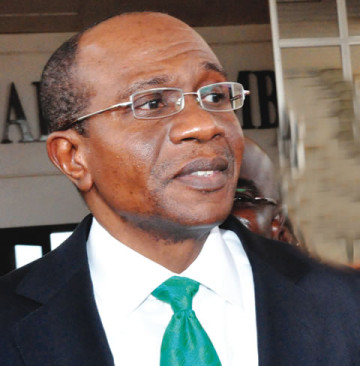
MPC Votes to Retain MPR at 14%
The Monetary Policy Committee (MPC) of the Central Bank of Nigeria has voted to retain the Monetary Policy Rate(MPR) at 14 percent at its meeting held between 24th and 26th of September, 2018 at the CBN headquarters , Abuja.
The Governor of the apex bank, Mr. Godwin Emefiele who announced the decision said the committee also voted to retain all other parameters such as the Cash rediscount Rate(CRR) at 22.5 percent, Liquidity Ratio at 30 percent and also the Asymmetric Corridor at +200 and -500 basis points around the Monetary policy rate.
Said Emefiele” In light of the above, the MPC decided by a vote of seven (7) members to retain the MPR at 14 per cent. However, three (3) out of these seven (7) members voted to raise the Cash Reserve Requirement (CRR) by 150 basis points, an indication that left to them, we should have tightened. The other three (3) members voted to tighten by raising the MPR by 25 basis points.
The Committee was concerned that the exit from recession may be under threat as the economy slowed to 1.95 and 1.50 per cent in Q1 and Q2 2018, respectively. The Committee noted that the slowdown emanated from the oil sector, with strong linkages to employment and growth in other key sectors of the economy. In this regard, the Committee urged government to take advantage of the current rising oil prices to rebuild fiscal buffers, strengthen government finances in the medium term and reverse the current trend of decline in output growth. The MPC also called on the fiscal authorities to intensify the implementation of the Economic Recovery and Growth Plan (ERGP) to stimulate economic activity, bridge the output gap and create employment.
The Committee noted that disruptions to the food supply chain in major food producing states due to the combined effects of poor infrastructure, flooding and the on-going security challenges resulted in a rise in food prices, contributing to the uptick in headline inflation. The Committee was, however, optimistic that as harvests progress in the coming months, pressure on food prices would gradually recede, while growth enhancing measures would over the medium term have some moderating impact on food prices.
The MPC expressed concern over the potential impact of liquidity injections from election related spending and increase in FAAC distributions which is rising in tandem with increase in oil receipts.
The Committee was concerned with the rising level of non-performing loans in the banking system, traced mainly to the oil sector and urged the Bank to closely monitor and address the situation. It also expressed concern over the weak intermediation by Deposit Money Banks and its adverse impact on credit expansion and investment growth by the private sector.
In view of the above developments, the MPC noted that the economy was still confronted with growth headwinds and inflationary pressures. It reiterated the need for synergy between monetary and fiscal policies as a viable option for macroeconomic stability. The Committee, therefore, identified two likely policy options as tightening or maintaining the status quo ante. Tightening would tame inflationary pressures, stem the reversal in portfolio capital, improve the external reserves position and maintain stability in the foreign exchange market. Conversely, the MPC felt that raising rates would further weaken growth as credit would become more expensive, NPLs would increase further, leading to a deceleration in output. In the Committee’s opinion, the upward adjustment would not only signal the Bank’s commitment to price stability but also its desire to maintain positive real interest rates.
